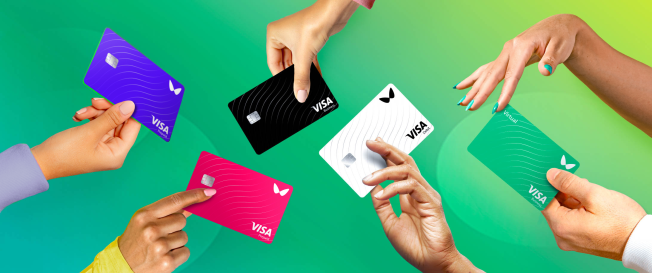Credit card issuers are responsible for issuing credit cards to individuals and businesses. The issuer provides the card on behalf of credit card networks, making them intermediaries between networks and cardholders. Also, credit card issuers manage cardholders’ accounts, and as of 2022, over 200 financial institutions were issuing credit cards in the U.S.
This article covers all you need to know about credit card issuers. You’ll learn about what a credit card issuer is, how it differs from a credit card payment network, and the biggest issuers in the industry.
What Is a Credit Card Issuer?
Anyone with a credit card has dealt with an issuer, but who is a credit card issuer? The terms refer to any financial institution (credit unions, banks, or fintech companies) that provides businesses and individuals with secured credit cards. You must have a good FICO (Fair Isaac Corporation) score to qualify for a credit card.
This is essential as credit card companies take risks when approving credit cards or expanding a credit limit. Therefore, organizations and individuals with a low FICO score or credit history often do not qualify for credit cards. However, if the credit card issuer approves the application of a business or individual with bad credit, they will have a low credit limit until they improve their FICO score.
Furthermore, most credit card issuers offer incentives to get customers, like bonus points, cashback, and extended warranty. Credit card issuers also differ from credit card networks (more on this shortly). Ultimately, financial institutions that issue credit cards do the following:
- Receive credit card applications, which they accept or deny
- Create the terms and conditions of the card
- Set the benefits and features the cardholder enjoys
- Handles transaction payments for the cardholder
- Collect due payments from the cardholder
- Provide customer care service
Note that financial/lending institutions that issue credit cards also give debit cards, prepaid cards, and commercial cards.
How Does a Credit Card Issuer Work?
The first thing to know is that the credit card company holds all the power. They decide whose credit card application they will approve and whose they will reject. However, their decision is based on whether an applicant meets specific criteria.
First, they examine the applicant’s creditworthiness and what they plan to use the card for. Applicants with a high credit score get lower rates than those with a low score. Also, some credit card issuers don’t charge interest or offer discounts if a cardholder pays off their balance every month.
Furthermore, credit card companies set credit limits that a cardholder must not exceed monthly. Exceeding the stated amount would lower your credit score, reduce the credit limit, and increase interest rates. Also, most credit card issuers do not process transactions with merchant accounts. But they can approve the credit card transaction or decline it.
Credit Card Issuer vs. Credit Card Payment Network
As mentioned, a credit card issuer is a bank or credit union that provides you with a secured credit card to facilitate transactions. These companies offer business credit cards and individual credit cards. The cardholder must have a credit card account with the issuing company.
Also, with a credit card, the cardholder can buy from any business that accepts credit cards. At the point of payment, the credit card issuer can either let the purchase go through by lending the cardholder the money needed or withhold consent. So, the cardholder borrows money from a credit card company, which comes with an interest rate.
On the other hand, a credit card payment network facilitates the transactions between card issuers and payment processors/merchant banks. The major credit card networks in the United States are:
💳 Mastercard
💳 Visa
💳 Discover
💳 American Express
Credit card networks charge merchants interchange fees for facilitating transactions with card issuers. Here’s how the relationship between merchants, credit card issuers, and card payment network work:
👉 A cardholder makes a payment with their credit card
👉 The card network service provider processes the payment
👉 The credit card payment network verifies with the card issuer that the credit card is active and has enough money to cover the purchase
👉 The credit card issuer pays the purchase into the merchant’s account on behalf of the cardholder
Some credit card networks also issue cards, but not all provide credit to the cardholder. For instance, American Express and Discover are credit card issuers and networks, while Visa and Mastercard are only networks. Also, Capital One Bank and Wells Fargo issue cards but do not have networks.
It is noteworthy that not all merchants accept cards from multiple networks. Therefore, ask the merchant if they take your credit card type before purchasing an item. Some brick-and-mortar and online stores display the logos of the accepted networks at the entrance of their store or checkout.
What Is the Importance of Card Issuers and Payment Networks?

Credit card issuers allow cardholders to transact when they lack funds in their debit cards. Additionally, a credit card company:
- Gives you easy access to credit
- Provides opportunities to build your line of credit
- Allows you to make large purchases and pay in installments
- Provides a detailed record of your monthly purchases
- Offers purchase protection by providing insurance for transactions made with stolen, damaged, or lost cards
The credit card company controls the terms and features of the card. Therefore, ensure that the card meets your needs and the issuer is reputable in the payment processing industry.
The credit card payment network is the intermediary between merchants and card issuers. Businesses can decide the network they want to accept; they can take all four networks mentioned earlier, one or none. Furthermore, credit card networks offer purchase security to cardholders.
It does this by monitoring and stopping fraudulent transactions. Additionally, card networks create rules for the cards on their network to follow. An excellent example is Mastercard stating that it will phase out the magnetic stripe on its credit and debit cards in 2023.
What Is the Role of Credit Card Issuers in Credit Card Processing?
The credit card issuer is the one that sends the money spent on a product or service with a credit card to the merchant’s account. The merchant gets the money from the credit card issuer. This is what it looks like:
- The business owner/merchant accepts card payments for goods and services
- The payment processor receives the card information from the merchant
- The payment processor sends the request using the card scheme to the card issuer
- The issuing financial institution reviews the card account to see if it is active or whether the amount of the transaction is available in the account
- The card issuer will either authorize or deny the transaction, and the decision gets sent back to the card scheme
- The merchant sends the authorized transaction to the payment processor
- The money is transferred from the cardholder’s account to the merchant’s
Credit Card Networks Review
Below are some credit card networks and a brief review of them.
Visa
Visa Inc. is a multinational financial services corporation in San Francisco, California. Visa is the world’s most common credit card network. There were 369 million Visa credit cards in the United States as of the second quarter of 2022 and 865 worldwide.
Credit cards branded by the Visa network are accepted in over 200 countries and territories globally and have various types. The types include Visa Classic, Visa Gold, Visa Platinum, Visa Signature, and Visa Infinite. The requirements for eligibility for each of these cards differ, as do their benefits.
To get a Visa credit card, visit its website and select the card you want. Then click on the ‘apply now’ icon and fill out the form that appears with the correct details. Visa charges 1.4% to 2.5% as interchange fees.
American Express (Amex)
American Express serves as a credit card network and issuer. It caters to other card issuers, merchant acquirers, or fintech companies. As card issuers, consumers and businesses can apply directly to American Express.
Amex cards are accepted by 99% of U.S. businesses, and more than 66 million businesses are using the card globally. American Express has co-brand partnerships with financial institutions in the U.S., like Wells Fargo. It also has retail-co-branded credit cards with Delta Airlines.
The Amex network fee is about 0.15% of the total number of monthly American Express transactions. Online businesses that accept card remotes pay an additional surcharge as the card-not-present fees.
Mastercard
Mastercard is the most accepted credit card network globally and is used in over 210 countries and territories. However, Visa leads it in card circulation, with Mastercard having 725 million cards worldwide as of March 2021. As a branded network, Mastercard helps financial institutions process electronic payment services for merchants.
Some popular Mastercard options are Standard, World, and World Elite Mastercard. Since it is not a card issuer, Mastercard co-brand cards with issuing banks. The issuer has the power to determine the card’s terms and conditions and can give credit, debit, or prepaid cards.
Also, retailers can partner to co-brand a credit card with Mastercard. However, a third-party bank acts as the issuer. An example of a retailer-co-branded card is American Airlines’ Mastercard, offered by Barclay Bank. Capital One, Chase, Citi, and Bank of America are other issuers that partner with Mastercard for co-branded cards.
Discover
Discover is in the business of connecting the world through payments. Although it catered solely to Americans when it started, it is now present in over 200 countries and territories. Also, more than 305 million subscribers transact on Discover’s network, and in 2022, it recorded over $550 million in transactions.
Discover also charges interchange fees, but the amount differs depending on the card type, the mode of entry, and other relevant details. So, for a card-present purchase, the interchange rate is $0.10 per transaction. For recurring transactions on a Discover Basic credit card, the fee is $0.05.
Credit Card Issuers Fees
For every purchase made with a credit card, the issuer gets 1% to 3% of the amount spent. The card type, transaction details, and purchase volume determine the percentage. Also, the card issuer may divide the fee with the payment processing network.
Most credit card issuers make money from the consumers, not merchants. Consumers pay different types of fees to credit card companies yearly. They include the following:
- Annual Fees: Consumers pay yearly fees for using a credit card. However, compared to the rewards and other incentives offered by credit card issuers, the cost of annual fees appears inconsequential.
- Late Payment Fees: A significant amount of the money made by credit card issuers is from late payment fees. For example, interest rates increase when a cardholder fails to pay an existing balance within the timeframe stipulated by the credit card company.
- Balance Transfer Fees: This fee is for those with accumulated credit card debt. With balance transfer fees, the cardholder will combine the amounts owed to one account and pay it off.
- Foreign Transaction Fees: If a cardholder uses their card outside the country of issuance, they will pay foreign transaction fees for the exchange of currency. The card issuer charges the cardholder for converting the foreign currency to their local currency.
Who Are the Biggest Credit Card Issuers in the Industry?
The following are the top credit card insurers in the industry:
Discover
Again, Discover is a credit card issuer and network serving small and large businesses. Their credit cards are Discover it®: Secured Credit Card, Cash Back, Miles, and Student Cash Back. Discover customers do not have to undergo intense credit report inquiries. As a result, they receive pre-approved credit cards, making Discover famous among young people. Also, Discover does not charge annual or foreign transaction fees.
Lloyds
Lloyds Bank operates primarily in England and Wales, offering different personal banking services, including credit card issuance. Some of its popular credit cards are Lloyds Bank: Platinum Low Rate Credit Card, Platinum 0% Purchase and Balance Transfer Mastercard, etc.
Citi
Also known as Citibank, this card issuer has been serving Americans for over two centuries. Its popular credit cards are Citi: Custom Card, Double Cash Card, Premiere Card, and Simplicity Card. It has an effective cash-back policy, and cardholders earn points through the ThankYou Rewards Program. You can exchange the points for gift cards, cash back, or travel.
Barclays
Barclays started in the United Kingdom before branching out to the U.S. Most Barclays credit cards are produced in partnership with famous travel brands. Examples are Advantage Aviator, Red World Elite Mastercard, Hawaiian Airlines World Elite Mastercard, etc.
Deutsche Bank
Deutsche Bank is one of the leading financial service providers globally, issuing credit cards. Its popular credit cards include Deutsche Bank: Mastercard Standard, Mastercard Gold, etc. You can apply for a credit card on the bank’s website.
Wells Fargo Bank
Wells Frago has existed for more than 150 years, and it is known for its Wells Fargo: Reflect Card, Active Cash Card, Rewards Visa Credit Card, etc. Also, Wells Fargo has secured credit card products for small businesses, making them a favorite for such enterprises.
J.P. Morgan Chase
J.P. Morgan Chase serves customers in over 100 global markets offering credit cards, among other financial services. Credit cards issued by this financial institution include Amazon Prime Rewards Visa Signature Card, Starbucks® Rewards Visa® Card, Southwest Rapid Rewards® Priority Credit Card, etc.
American Express
American Express is one of the largest card issuers, with popular cards like the Amex: Gold Card, Blue Cash Preferred Card, Cash Magnet Card, etc. Consumers can earn cash back and enjoy other reward programs by using Amex credit cards.
How Wallester Can Help You
Stay tuned to our LinkedIn page Wallester Linkedin
Learn more about Wallester at
Wallester is a fintech company with several services, including card issuing. With Wallester, you can issue physical and virtual branded cards with customized functionality that meets international security standards. You can order, activate, set limits, book cards, and configure other options to make your business effective and productive.
Also, Wallester issues Visa credit cards. This universal payment instrument is multifunctional, user-friendly, and has improved security with 3D Secure 2-Step authentication. With our Visa credit cards, you have instant access to funds and can make purchases at any time.
Contact us, and we will provide more info about our payment card products.
Final Words
Credit cards are indispensable to businesses and individuals, but you must meet the requirement of the card issuer to qualify for one. Also, credit card issuers charge different fees, and the card network a merchant uses determines the credit card they can accept. So, as an individual, get a credit card with the best terms. As a merchant, ensure your payment system takes all the credit card networks to make it easier for customers to transact with you.


